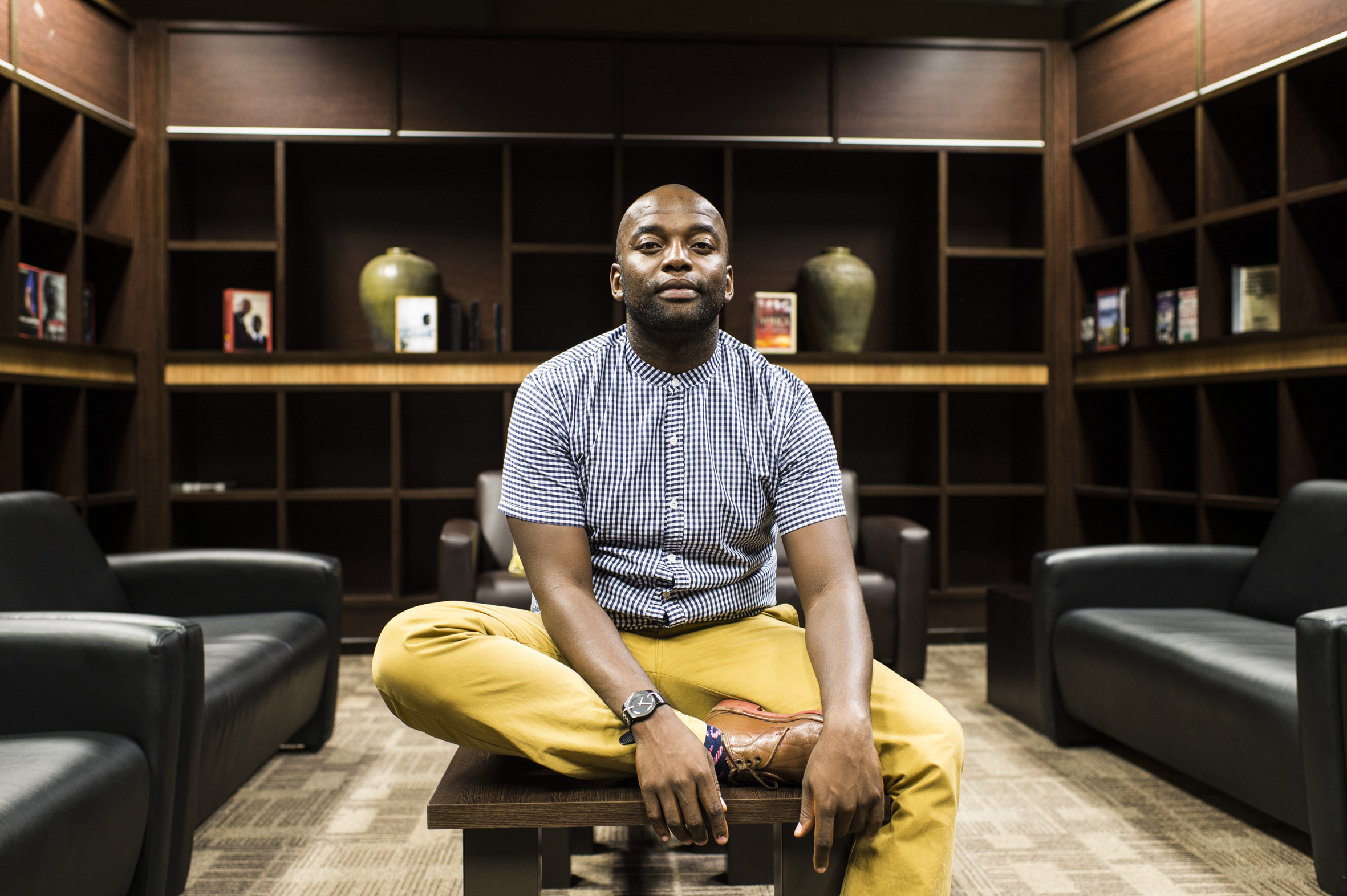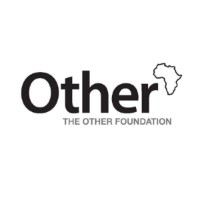Making their voices heard: Mpho Buntse works for the ANC-aligned Embrace Diversity Political Movement. (Delwyn Verasamy)
Mpho Buntse lets out a brief, wry laugh as he says: “For me, that’s a no-brainer.” He was responding to a question about whether being a queer person in the political area holds any challenges.
“The political make-up of South Africa — and Africa generally — is one that is largely patriarchal and misogynist. So anything that is outside what patriarchy perceives to be a leader is seen as problematic. Women are facing huge struggles when it comes to finding expression within political movements. So, you know, who are we as LGBTIQ [lesbian, gay, bisexual, transgender, intersex and questioning people] [to try to claim space]?” says Buntse, the national spokesperson of the Embrace Diversity Political Movement, an ANC-affiliated body.
“We struggle for acceptance … even within the ANC. Not as a structure, but from individual members who hold their own conservative views because of religion or culture. The ANC is a broad church, so the challenges we face are not only outside, but also inside. That is something we are trying to address.”
In the hope of addressing these challenges, Buntse was one of about 20 people who attended South Africa’s first LGBTIQ political training programme held in Cape Town in 2017. It aims to equip LGBTIQ leaders “with the necessary skills to participate in the political process and hold public office positions, so they can fight the violence and inequality this population experiences from within the political system”.
According to the programme’s website, this is part of a larger initiative between the Triangle Project, a nonprofit human rights organisation based in Cape Town, and the LGBTIQ Victory Institute based in Washington, DC, aimed at bringing the topic of political participation for queer people in South Africa to the public political agenda.
The institute has been running programmes in the United States to get more LGBTIQ people into elected positions since the 1990s. According to Matthew Clayton, the institute approached the Triangle Project “to collaborate and to adapt their methodology to suit a South African setting”.
“While all forms of activism are obviously political, we had never tried to engage at this level — a level to see more queer people actually being elected and being decision-makers, either in governments or in political parties. We believe that this kind of political engagement can bring real change to the lives of queer people in the longer term and are hopeful at the idea of having more queer people ‘in the room’ rather than advocating for what is said inside of the room,” he says.
 Kelebogile Moruane is not a member of any political party, but wants to reach politicians across the spectrum (Delwyn Verasamy)
Kelebogile Moruane is not a member of any political party, but wants to reach politicians across the spectrum (Delwyn Verasamy)
These hopes were dented slightly when the 2018 training programme could not be held because of a lack of funding. Having secured funding for the 2019 leg from the United Nations Democracy Fund, this year’s programme is due to start in May.
“That’s why our 2019 programme runs through to 2020 and includes fellowships within [the] Triangle Project’s research, advocacy and policy programme. We’re hoping to give a few people real experience of advocacy and policy development from an NGO [nongovernmental organisation] perspective,” Clayton says, adding that political affiliation is “absolutely not a barrier” to participation.
Like Buntse, Kelebogile Moruane took part in the 2017 programme. Unlike Buntse, Moruane, who has been active in the human rights sector for close on eight years, is not a member of any political party.
“More than anything, what I took out of it was the importance of building allies from whichever political party. And to give the practical experience of what it is like to be within a political party and be activating for human rights protection and advancement within the political sphere,” says Moruane.
The diversity of participants, he says, is also something to be commended. “There were gender-nonconforming people, trans people, sex workers … So one could really look at what the dynamics and challenges within LGBTIQ communities are and how those could somehow be addressed in the political space.”
The Democratic Alliance’s Zakhele Mbhele is widely recognised as the first openly gay black MP in Africa.
In a 2017 interview with queer website Mamba Online, Mbhele said: “LGBTQ visibility is important in all sectors for at least two reasons: firstly, it is a necessary tool to counter and challenge homophobia because homophobia, in the first instance, always seeks to make LGBTQ people invisible by shaming and stigmatising us. Secondly, open and visible LGBTQ figures can be role models for younger LGBTQ people that they can identify with and look up to, which they often lack in our heteronormative world.”
For Moruane, the need for queer people in the political arena is important “to make sure their voices are heard. Because, as a group in society that is often overlooked, policies can be drafted and we can be ignored. [We need to] make sure we are included in these policies that will be guiding them.”
For Buntse, however, it is an inherent right. “Beyond anything, we are part and parcel of the Constitution, beyond our sexual orientation. So we are entitled to contesting spaces, to holding positions of power, to becoming ministers, to be deployed to serve the country on international platforms such as the United Nations. Not because of anything other than the fact that we are South Africans and our Constitution recognises us as human beings.”
Carl Collison is the Other Foundation’s Rainbow Fellow at the Mail & Guardian
